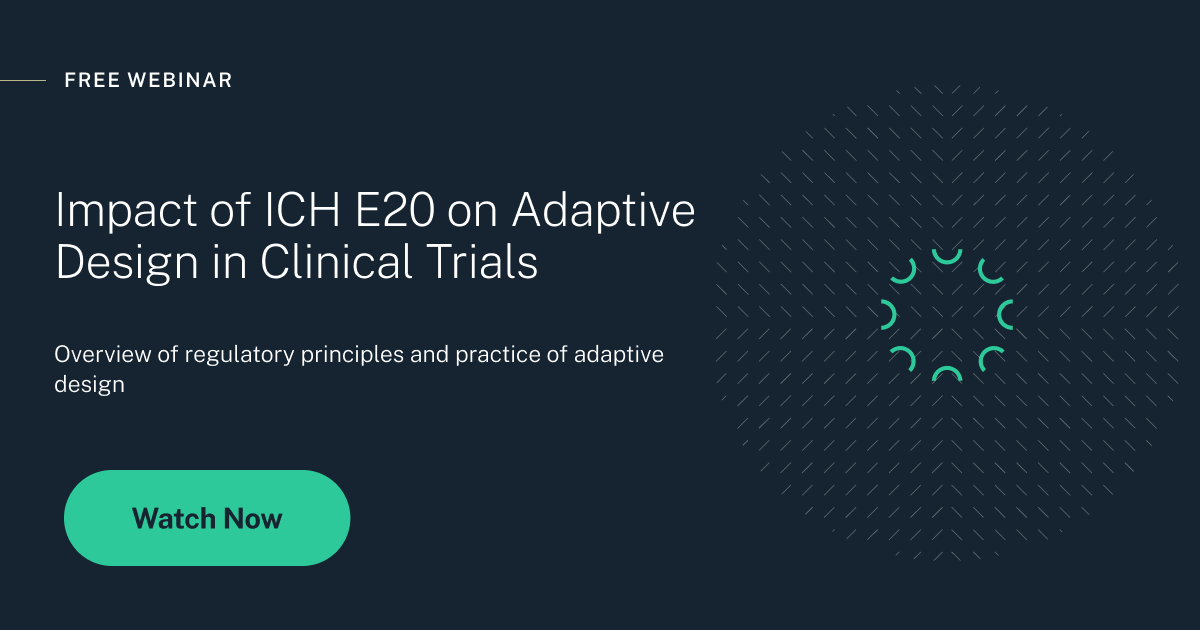Crossover & Cluster Randomized Trials
Crossover & Cluster Randomized Trials
Alternative Study Designs and Randomization Schemes
A parallel randomized controlled trial with individual randomization is a popular design choice, but it has limitations.
We have explored the suitability, benefits and limitations of alternative trial designs.
We guide you on how to best use crossover designs, cluster randomization and a combination of both as alternative methods. This allows you to make informed decisions for your research.
In this free webinar, you will learn about:
- Low power and recruitment issues in parallel RCTs via
- Crossover designs - e.g. 2x2 Crossover, Williams Crossover, Higher-Order Crossover
- Logistical issues with individual randomization via
- Cluster Randomized Trials
- Cluster-Crossover Designs
- Stepped-Wedge Designs
Crossover & Cluster Randomized Trials
Study design and statistical methodology must be considered early when planning any clinical trial. Randomized controlled trials (RCTs) are often viewed as the gold standard for clinical trial design and the parallel design with individual randomization is the most common type of RCT.
However, this design can face problems such as low power and recruitment issues.
Crossover designs are an alternative to parallel designs where each subject receives all treatments and acts as their own control.
This design can be more powerful than a parallel trial but is not always applicable and faces other limitations.
In cluster-randomized trials, entire groups (clusters) are randomized instead of individuals, often simplifying the logistics of a trial. However, this can require a larger sample size and introduce other biases into the design that must be considered.
Designs that combine crossover with cluster randomization are another option. These can utilize a simple 2x2 crossover (cluster-crossover), cross over in multiple periods (multiple period cluster-crossover) or cross over in one direction only (stepped-wedge).
In this free tutorial, we have examined these alternative methods to the parallel RCT with individual randomization and assessed their benefits and limitations.
nQuery helps make your clinical trials faster, less costly and more successful with tools for sample size calculation - refining Frequentist, Bayesian & Adaptive designs.
Start your unlimited 14-day trial to help design efficient, informative and ethical adaptive trials.
Who is this for?
This will be highly beneficial if you're a biostatistician, scientist, or clinical trial professional that is involved in sample size calculation and the optimization of clinical trials in:
- Pharma and Biotech
- CROs
- Med Device
- Research Institutes
- Regulatory Bodies














